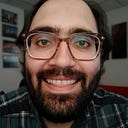Member-only story
Education as a tool for reconciliation — Armenian-Azerbaijani School for Peace
At a time when missiles are being launched and the fighting ensues between Armenian and Azerbaijani defence forces, I draw on the lessons from a Jewish-Arab school for peace to envision what co-existence might look like once both communities come together and start to live in peace, if and when that happens. Integrated schools with Armenian-Azerbaijani students should be at the heart of future peace and reconciliation efforts.
Since I first heard about Neve Shalom or Wahat al-Salam (‘Oasis of Peace’ in Hebrew and Arabic, respectively), a Jewish-Arab peace-building community established in 1970 (NSWAS, 1994), I have been childishly dreaming of an Armenian-Azerbaijani educational community that will lead the way in establishing sustainable peace in the South Caucasus. While there does not seem to be hope for peace between Armenians and Azerbaijanis in the foreseeable future, both need to start planning for the reconstruction and rehabilitation of the region where everyone can live peacefully.
